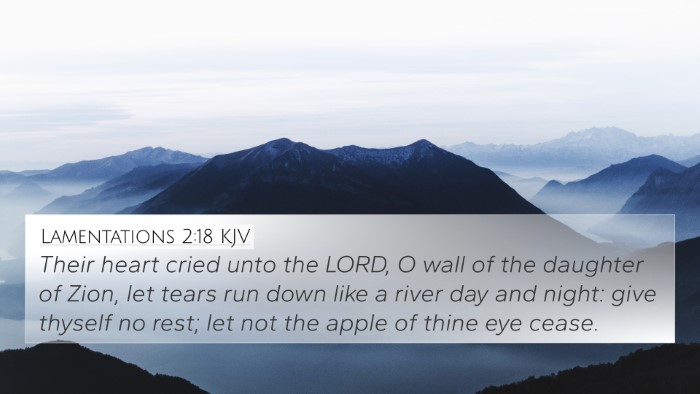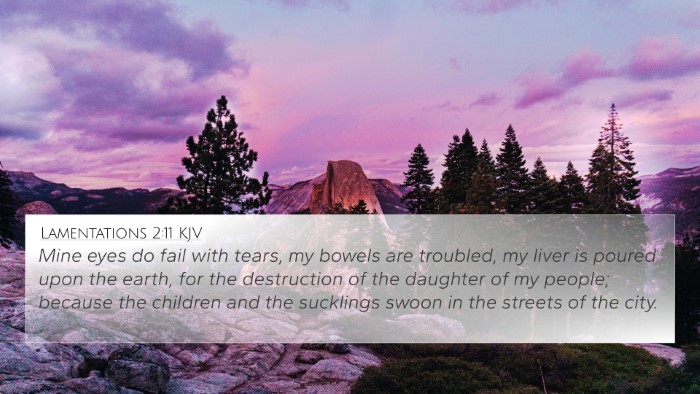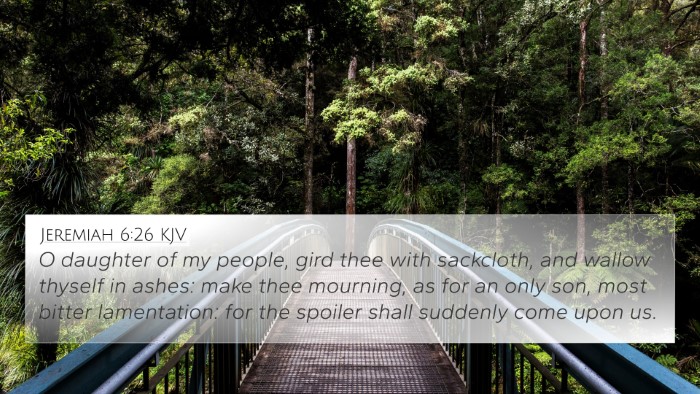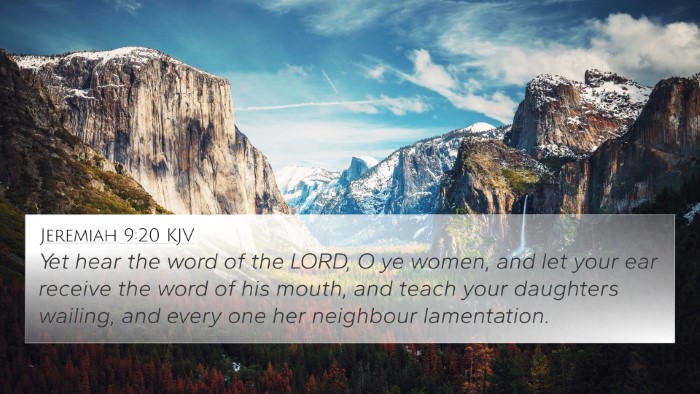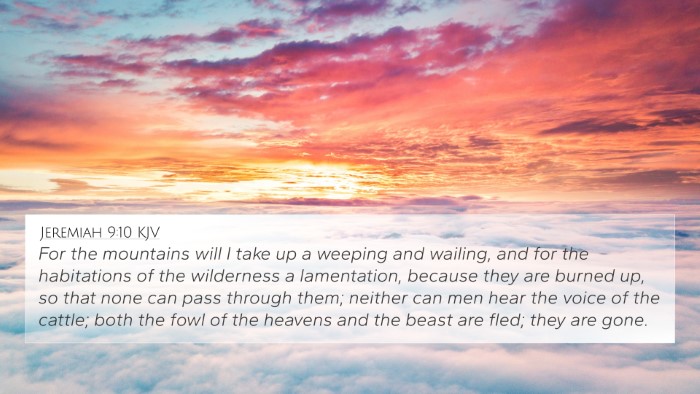Understanding Jeremiah 9:18
Verse: Jeremiah 9:18
In this verse, the Lord expresses a deep sense of sorrow for the impending judgments upon Jerusalem and calls for mourning among the people. This reflection of grief can relate to multiple themes throughout the scriptures, highlighting the ultimate plight of sin and the call to repentance.
Combined Commentary Insights
The combined insights from public domain commentaries, including those by Matthew Henry, Albert Barnes, and Adam Clarke, help elucidate the meaning of Jeremiah 9:18.
- Matthew Henry's Commentary: Henry emphasizes the significance of mourning over the sins of the community. He suggests that the lamentation for the “daughter of my people” illustrates God's heart for His creation and portrays the emotional toll of God's judgment.
- Albert Barnes' Notes: Barnes reflects on the societal implications of this verse, indicating that such mourning should serve as a profound reminder of the seriousness of sin and the need for collective repentance. He also connects this with the broader narrative of Israel's history and the consequences of their disobedience.
- Adam Clarke's Commentary: Clarke provides a historical context, noting that the call to mourning highlights the destruction of Jerusalem, which serves as a warning. He interprets this as a divine invitation to recognize the gravity of turning away from God.
Key Themes and Connections
This verse evokes several key themes from the Bible, primarily the themes of mourning and the path to repentance. Below are some thematic connections and cross-references that illustrate these concepts.
- Isaiah 53:3: This verse shares the theme of sorrowful lament, reflecting the suffering servant's rejection and grief for His people.
- Lamentations 1:12: A poignant parallel, Lamentations expresses deep sorrow over Jerusalem’s desolation, aligning with Jeremiah's call for mourning.
- Psalms 119:136: The psalmist shares a similar sentiment of anguish for disobedience, reinforcing the emotional response towards sin.
- James 4:9: In the New Testament, James calls for grief and mourning as a response to sin, showing the continuity of this theme across scriptures.
- Matthew 5:4: "Blessed are those who mourn," establishes a beatitude that connects mourning with spiritual comfort and true repentance.
- Hosea 6:1-2: Calls for repentance with a promise of restoration, inviting the people to recognize their state and turn back to God, echoing Jeremiah's pleas.
- 2 Chronicles 7:14: Highlights the importance of humility and prayer in seeking God’s forgiveness, mirroring the lamenting theme of Jeremiah 9:18.
Mourning as a Spiritual Discipline
The act of mourning is not just an emotional response; it is a vital spiritual discipline that reflects a contrite heart. This scriptural theme can be seen as forming connections across both testaments:
- Old and New Testament Dialogue: The shared theme of mourning and repentance across Jeremiah and the New Testament teachings suggests a unified biblical narrative.
- Emotional and Spiritual Connection: The genuine sorrow for sin is seen as a vital step toward genuine repentance and receiving God’s mercy.
Using Cross-References for Deeper Study
To engage with Jeremiah 9:18 deeply, it is essential to employ tools for Bible cross-referencing. Here are some methods:
- Bible Concordance: Utilize a Bible concordance to find related verses and their contexts.
- Cross-reference Guides: Employ cross-reference Bible study tools to enhance understanding and see connections.
- Bible Chain References: Create linkages between different verses for comparative analysis.
- Comprehensive Bible Reference Resources: Access resources that provide an extensive look at related themes throughout the scriptures.
Conclusion
Jeremiah 9:18 presents a profound invitation for reflection and repentance. The combined insights from various commentaries deepen our understanding of the layered grief expressed in this text. Through scriptural cross-referencing, one can explore how this verse relates to others in the context of sin, mourning, recovery, and God's unfailing love and desire for His people's restoration.






